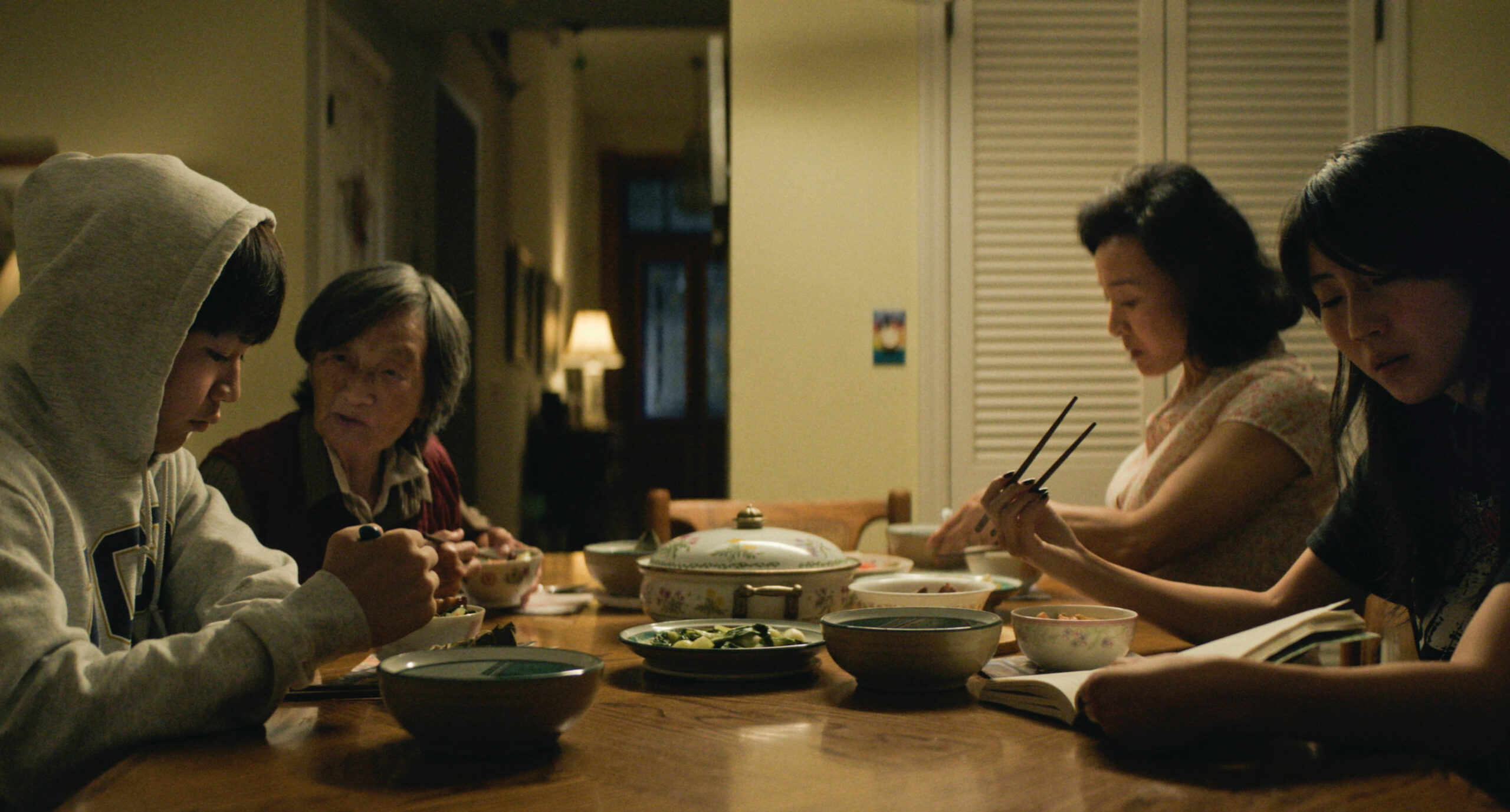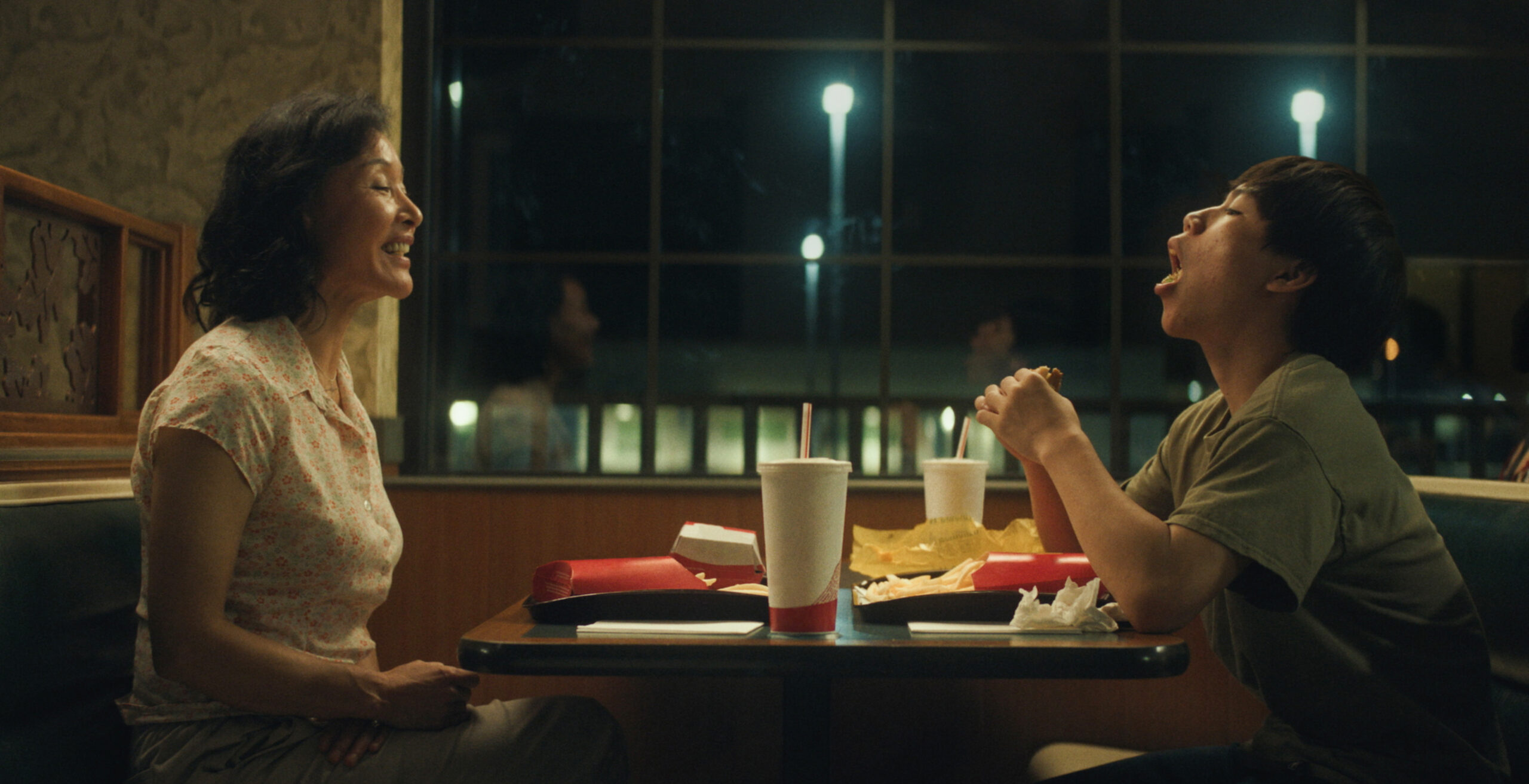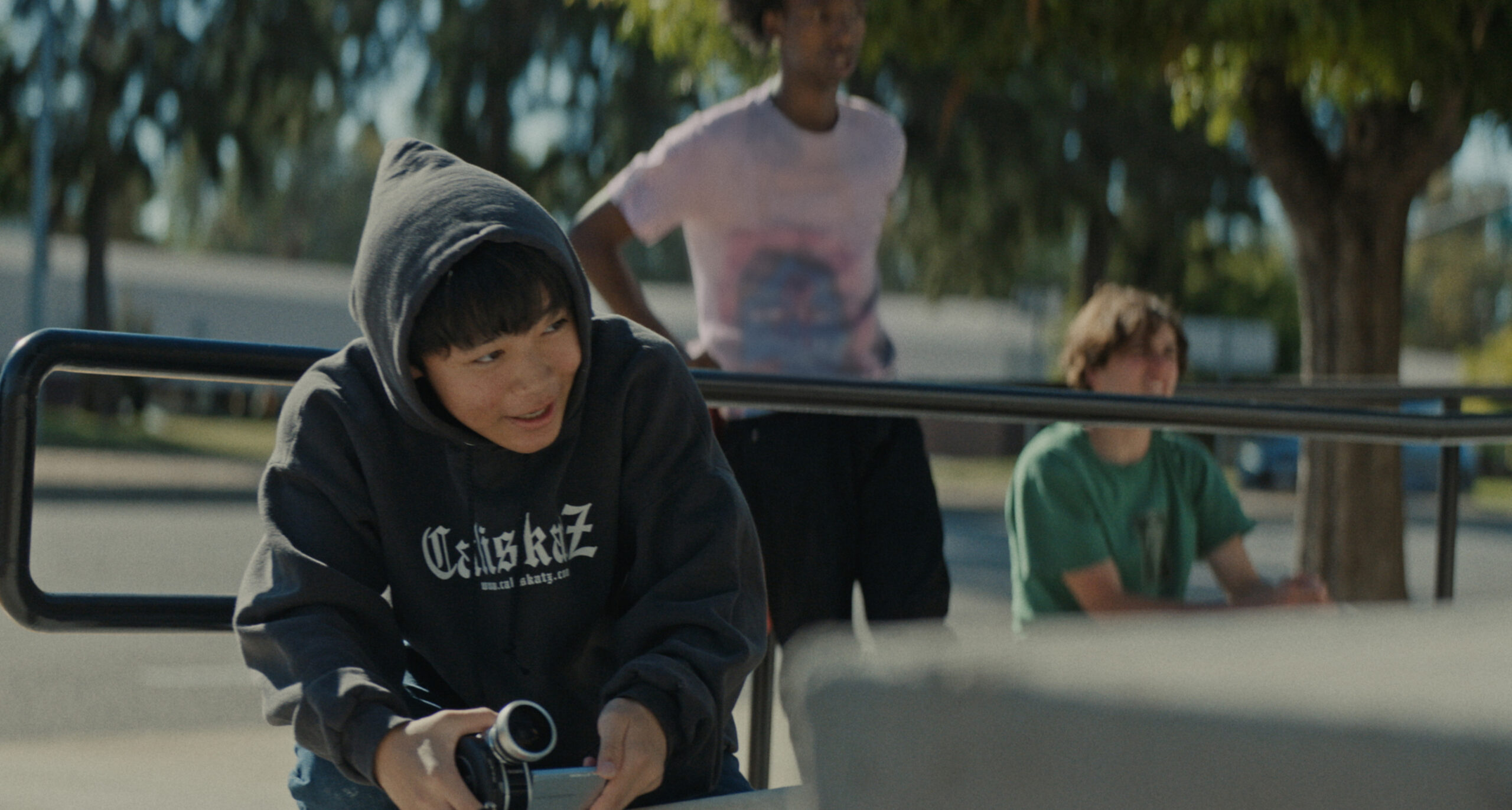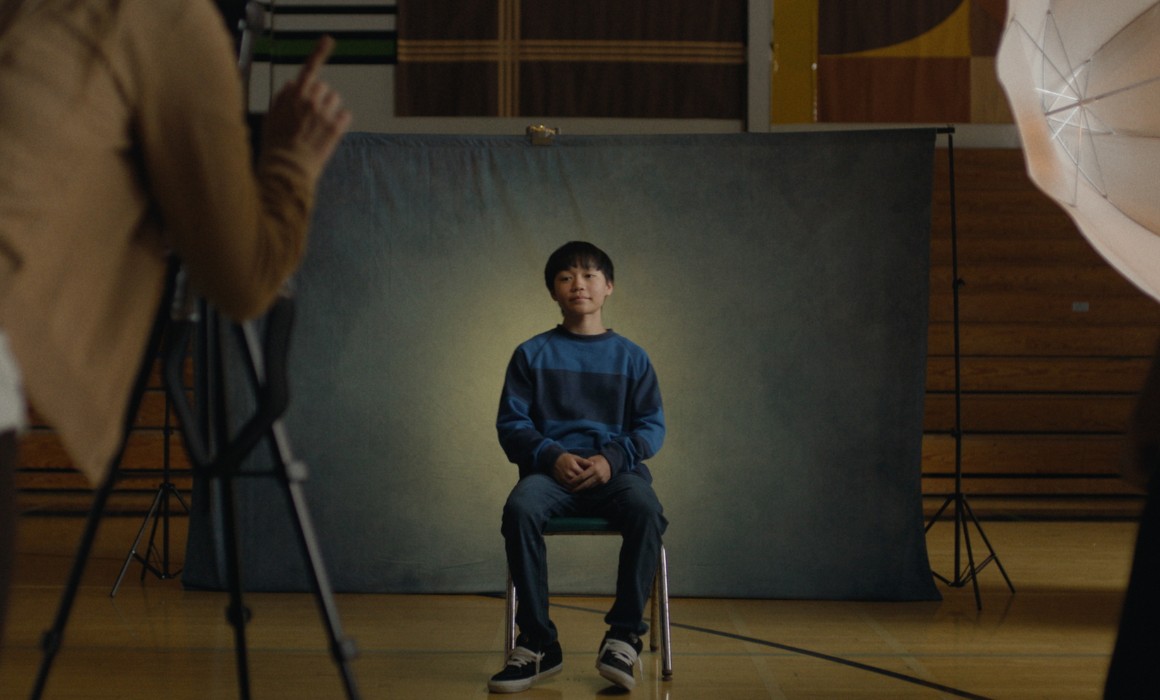When director Sean Wang was 13 years old, he was caught between worlds. It was 2008 and the internet was the place to be: AIM, Facebook, MySpace and YouTube were as frequently visited as school and the park. “I was living half my life online,” says Wang, who translated that fundamental year in his life into his semi-autobiographical debut feature film, Dìdi (弟弟).
Dìdi (弟弟) follows Chris Wang (played by Izaac Wang), a 13-year-old Taiwanese American boy living in Fremont, California. Chris—or, as his friends call him, Wang Wang—is about to enter his freshman year of high school and is spending his summer hanging out with his boys, trying to learn how to flirt, practicing his skateboarding skills and negotiating the relationships he has with his mom (played by the iconic Joan Chen), college-bound sister (Shirley Chen) and nai nai (Chang Li Hua, Wang’s real-life grandma who also starred in his Oscar-nominated short Nai Nai and Wai Po). Named for the affectionate term for little brother (which no one but his family members call him), Dìdi (弟弟) is a coming-of-age classic in the making.
Much of the tension in the film stems from Chris’s desire to fit in and do the right thing—whatever that means. But, like all young people, he can’t help but do the wrong thing at every turn: he blocks his crush, gets in a fight at his SAT prep class and lies about being half-white. Many of Chris’s mistakes also come from not knowing how to navigate his Asianness. He’s embarrassed by his mom’s Asianness, but he’s also surrounded by other racialized kids, like his friend Soup (played by Aaron Chang) and Fahad (Raul Dial), who seem much more confident in their skin.
The fundamental relationship at the core of Dìdi (弟弟) is between Chris and his mom. Unlike other coming-of-age tales, this one treats the mom with as much empathy as its lead. Chen, an iconic Chinese actress known for her roles in the Best Picture-winning The Last Emperor (1987), Twin Peaks and Saving Face, gives the role of Chungsing a quiet weight. With an absent father, Chungsing has the thankless job of caring for Chris and his smart-mouthed sister. And while she’s the only one who loves Chris for exactly who he is, Chris can’t help but squirm away from her embrace. She’s too stifling, too embarrassing, too Asian for him—a sentiment that too many of us are familiar with. Ultimately, though, Chungsing’s own dreams and desires are lovingly displayed alongside Chris’s—even as her son finds them cringe.

“The mother/son relationship was written in a way that I could very much empathize and relate to,” Chen tells RepresentASIAN Project. “As an immigrant raising two American children, having gone through the same kind of drama, I know that it is the most intimate and loving relationship that is, at the same time, so fraught with misunderstanding and cultural chasm.”
Wang says that he wanted to surround Chris with female family-members not just because that’s true to his own life, but because he wanted to dissect and look at how that impacted his family. “This movie is about boyhood, but also masculinity,” he says. “So what does being surrounded by women do for a 13-year-old boy?”

But what makes Dìdi (弟弟) a truly unique coming-of-age film is how it handles the internet. In 2008, mainstream Asian representation in the media was nowhere to be found. But online, it was a different story: Early YouTubers like Michelle Phan, KevJumba, David Choi and Wong Fu Productions built the language of the internet and a culture that persists to this day. And, crucially, they were very, very popular: a 2011 article in The New York Times says that three of the 20 most-subscribed to YouTube channels belonged to Asian Americans. Asians online were amassing millions of followers, and inspiring kids to broadcast themselves too.
Wang’s film is a love letter to this era of the internet—one that’s unlike any other film before. “It was a transitional period in technology that I felt like movies had never captured before, because by the time we learned how to integrate screens into our stories, the internet had completely changed,” Wang says. “And all the movies in the 2000s never depicted the internet because a lot of filmmakers thought that screens weren’t cinematic.”

Sure, it has elements of Bo Burnham’s Eighth Grade or Jonah Hill’s Mid 90s, but Dìdi (弟弟) ultimately is a brand-new take on teendom in the late aughts. Wang’s portrayal of the mother’s immigrant dreams and how it clashes with her kid’s desires to blend in, as well as the awkward pubescent navigation of the ever-shrinking gap between IRL and online is what makes Dìdi (弟弟) both heart-wrenching and heart-warming.
It’s a film that is sure to be added to the canon of great coming-of-age stories, a portrait of a teenage boy coming into his own while constantly reflecting the people and places around him.
Dìdi (弟弟) hits theatres in Toronto August 2 and nationwide on August 9th.
Like this post? Follow The RepresentASIAN Project on Instagram, TikTok and YouTube to keep updated on the latest content.











